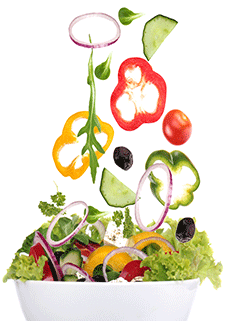Supporting Someone With Diabetes
Do you have diabetes, or support someone who has the condition? Here are tips to ensure good times without compromising good health. By Gail Ellison
Over the past 55 years, since I was diagnosed with Type 1 diabetes, I have been advised to eat a variety of restricted ‘diets’, so you can imagine my delight when the rules were relaxed somewhat to give me more leeway in my choices.
While those of us who have diabetes can now enjoy a taste of many of the foods that everyone consumes (even a little is better than none, says me!), we still need to be able to assess how every bit of food that goes in our mouths is going to be processed since the pancreas, our body’s wonderful autopilot that did all that automatically, has been switched off.
There wasn’t a lot known about diabetes in the 1950s; you just ‘had’ diabetes. There was no Type 1 or Type 2, and everyone was treated with insulin until oral medication arrived on the scene.
In my youth I often ‘felt the fear and did it anyway’ (thank you Susan Jeffers). I’m a great deal older now, a good deal wiser, and vastly more diabetes-educated. I sometimes cringe in horror when thinking of what I used to do as a child with Type 1. Ignorance might have been an excuse then, but not today.
The most important aspect of living with any type of diabetes is to understand that there are no days off from the condition, so the more you learn about managing it yourself, day by day, hour by hour, the better your life will be.
My best advice to others who also have diabetes is to be easy on yourself. Life is what we make it, and just because we have diabetes doesn’t mean that we can’t do (almost) everything that other folk do.
I thought I would share some tips for those supporting someone who has diabetes, courtesy of Diabetes NZ’s Auckland branch. I often show these tips to new friends so they can understand diabetes. Then we can all have some fun together!

Ways to help!
Don’t:
- Give advice about my eating or other aspects of diabetes. You may mean well but many common beliefs about diabetes (“you should stop eating sugar”) are out of date or just plain wrong.
- Tell me horror stories about your grandmother or others who have diabetes; the condition is scary enough! Besides, we now know that with good management, odds are you can live a long, healthy and happy life with diabetes.
- Look horrified when I check my blood sugars or give myself an injection. It’s not fun for me either!
- Offer thoughtless reassurances. Saying things like “hey, it could be worse, you could have cancer” won’t make me feel better. And diabetes, like cancer, is a big deal.
- Lead me into temptation. Please honour my decision to decline a particular food, even when you really want me to try it.
- Peek at or comment on my blood glucose numbers without asking me first. It is normal to have numbers that are sometimes too low or too high. Comments about these numbers only add to my disappointment, frustration and anger.
Do:
- Realise and appreciate that diabetes management is a full-time job that I didn’t apply for, didn’t want, and can’t quit.
- Offer to join me in making healthy lifestyle changes. After all, these changes benefit everyone!
- Ask how you can help. What I really need may be very different than what you think I need.
- Offer love and encouragement. Just knowing that you care is helpful and motivating.
If you have any questions about diabetes, or would like to learn more, visit www.diabetes.org.nz or phone the organisation’s toll free advice line, 0800 369 636.
Photo: Shutterstock.com, Kesu